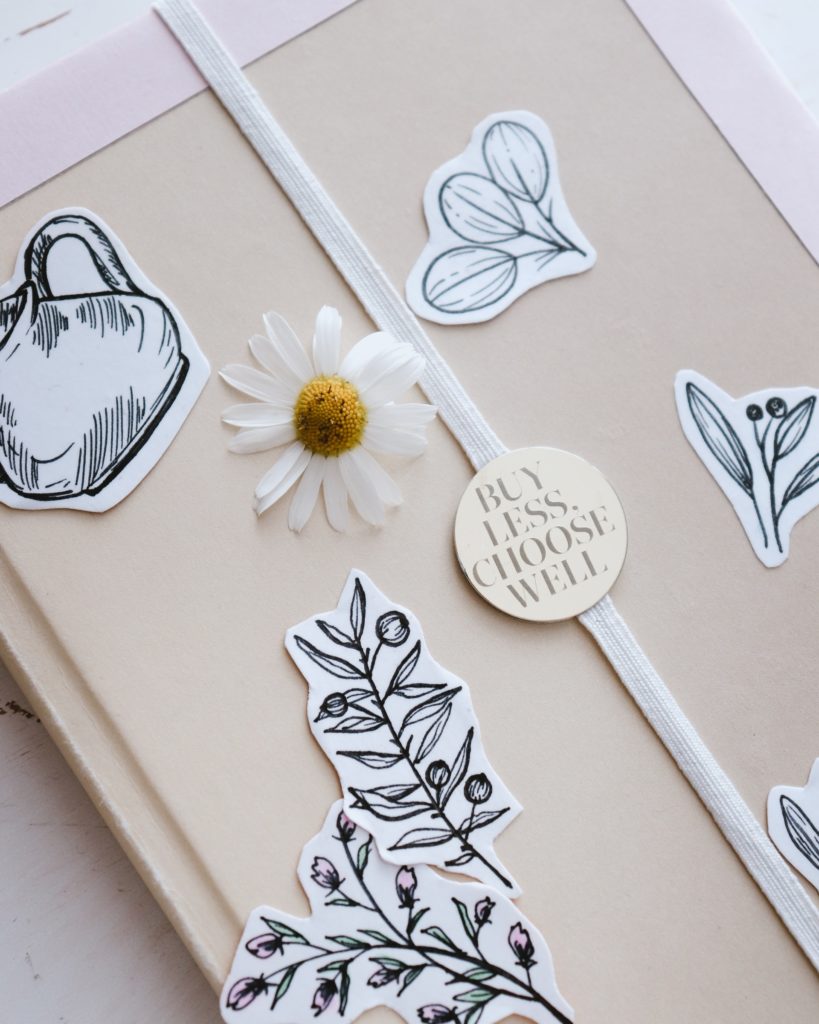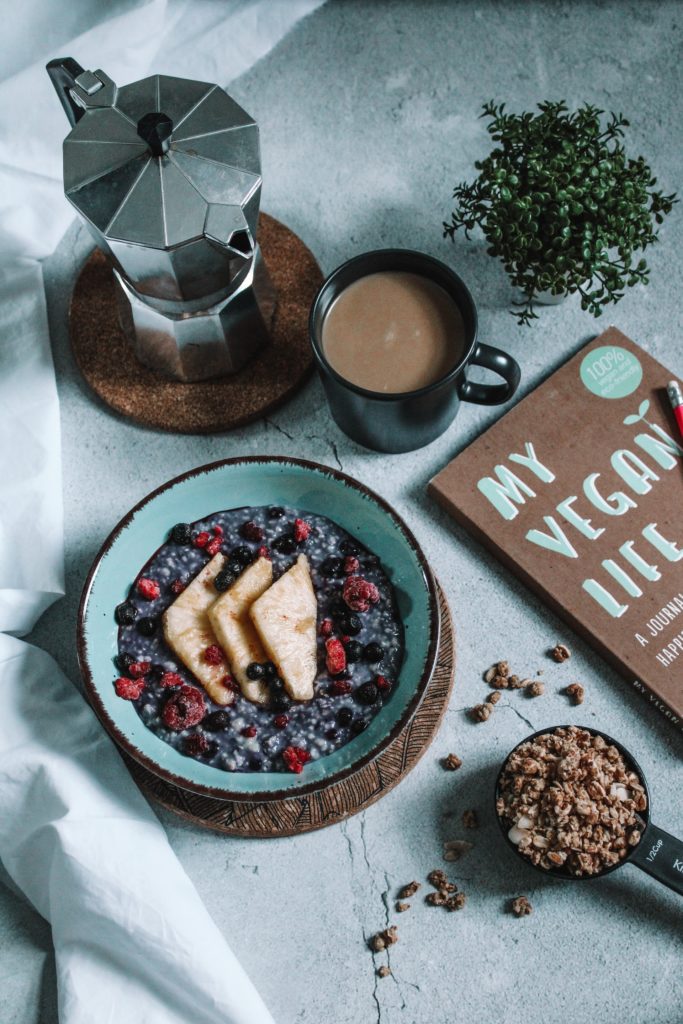Ever since I became vegan I’ve been making all sorts of changes and adjustments in order to align my actions and lifestyle choices with my new values. For me, being vegan is not only about what I eat, but also about what I wear, what skincare products I use, what form of entertainment I choose, all the way to who I am becoming and how I behave in relation to other living beings and our planet.
After I gave away about 70% of my possessions a few years ago when I decided to try and fit my life into two suitcases, I felt a sense of lightness and spaciousness which was clear proof that I didn’t need as much as I thought in order to function or be happy. This is important because it also helps with feeling okay (or even relieved) when presented with fewer options than we’re used to.
Supporting the ‘ideal’ vegan economy
In my ideal vision, this economy is like a closed loop that includes all vegans who pay for products and services and all the businesses and individuals that provide them. And they are all vegan! However, in reality the vegan economy seems to focus primarily on the vegan food market and statistics around that, like the prediction that this market will reach over $30 billion by 2026. This loose and potentially tricky way of navigating the reality of the vegan economy is not a surprise, considering only about 30% of the people in the U.K. (for example) decide to go vegan for ethical reasons. Nevertheless, the numbers show that there is a high demand for vegan products which is ultimately a positive aspect and important step towards a vegan future.

Of course it’s great that there is an increasing number of vegan startups and companies, but it’s not only the name or the business in itself that matters. It’s about the way the business operates, their core values and integrity throughout the journey. I wouldn’t want to buy a vegan meal from a vegan restaurant that employs or is run by non-vegans. Because then, part of my money will end up being used to pay for a beef steak, a ticket to the circus or a down jacket, therefore meaning that I unintentionally supported cruelty and went against my values as a vegan. Not to mention, that money flew right out of the true vegan economy at that point.
Unfortunately, I have to admit that I still do part of my groceries at the supermarket for example, which is supporting the conventional vegan economy, not my ideal one. Otherwise I do my best (under current circumstances and out of the available options) to avoid giant companies and instead focus on small vegan-owned businesses that only sell 100% vegan products or services, because to me, they embody the values that make up the foundation of that truly vegan economy. My dream vegan world may not be an easily achievable goal, but all the little choices that I make every day represent one element that I feel in my heart to be a major and impactful way of further aligning my actions with my values.
Incorporating sustainability into lifestyle
While being vegan solely from a food standpoint is already a major step toward a more sustainable lifestyle (more food on less land; all the other pros compared to the damages of animal agriculture), it is only the beginning and there are more angles to it than the food itself. I think the people who turned to veganism for ethical reasons are more likely to also aim for a higher level of sustainability, from not choosing the plastic covered fruits in the supermarket to making their own zero-waste cleaning products.

My journey to sustainability started with little changes like subscribing to services such as Oddbox and using reusable produce bags at the supermarket; I stopped buying clothes and shoes from brand names or fast fashion supporting stores; I recycle everything I can and try to cook as low-waste as possible; I even switched to a search engine that plants trees. There are so many factors (fossil fuels used for transportation, pesticides, labor standards, exploitation, etc.) involved in choosing the best products, that it can be quite difficult and time-consuming to research and investigate every company and parent company of the products or services you’d want to purchase. I don’t think it has to be perfect, but rather a constant and genuine improvement.
The ethical value of it all
This is an aspect that permeates into the other two above and also serves as an essential quality that I look for in whatever I do and the entities I support. In my opinion, it’s a rather ‘fluffy’ topic, as it includes all the animals used in all the ways by and for humans, as well as all the humans involved or used in the process of creating and offering the existing range of products and services.
Considering the ethical aspects of anything really, in my daily life, is contributing to me becoming a better person by enhancing the existing empathy, consideration and connection to all life, which in turn gives me a sense of peace, fulfillment and gratitude. The way I see it, keeping the ethical side as a ‘condition’ when moving through life is a reliable practice for living with integrity and maintaining that moral consistency between my heart, my values and the impact I have on myself and the outside world.
Also by Anca: What Unconventional Therapy Helped Me Understand About Myself & The World
Get more like this—Sign up for our daily inspirational newsletter for exclusive content!
__
Photo: Pure Julia via Unsplash; Brigitta Baranyi via Unsplash




